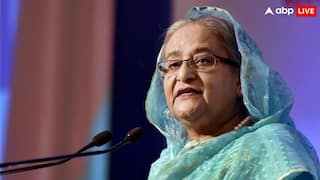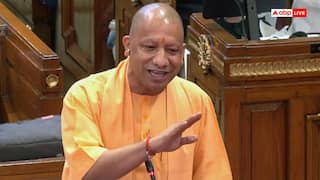4.5 % Fiscal Deficit Target Of FY26 Is Achievable: NITI Aayog’s Suman Bery
Bery further mentioned that the fiscal outcome of this year's budget surpassed initial expectations

The Vice Chairman of NITI Aayog, Suman Bery, described Finance Minister Nirmala Sitharaman's pre-election budget as 'fiscally conservative’ on Friday. He also expressed confidence that the fiscal deficit target of 4.5 per cent of GDP by 2025-26 will be achieved by the government. FM Sitharaman announced during her interim Budget speech on Thursday that Rs 11.11 lakh crore will be allocated to infrastructure development. "I think the interim budget is fiscally conservative, actually opens new ground and provides indications of what might figure in the actual major budget, which will be presented in July," Bery told the news agency PTI.
Bery further mentioned that the fiscal outcome of this year's budget surpassed initial expectations. "We are going to achieve 4.5 per fiscal deficit target for 2025-26 as it is important, both in substance and for signal," he added.
In the interim budget, the Modi government refrained from announcing populist measures. This strategy aims to reduce the fiscal deficit to 5.1 per cent of the GDP in the next fiscal year and further to 4.5 per cent in FY26.
There are multiple indications that private investment will revive in the country, according to Bery.
Speaking on capital expenditure outlay for the next financial year, he said that the economy was paralysed during the Covid-19 pandemic, there was a thrust on capex. "The logic is that in the short term, the return in terms of multiplier, connected with capex, is much greater than revenue expenditure," Bery said.
He also spoke about the measures announced in the budget to help create more jobs; he said, "The issue is not jobs; the issue is good jobs.”
He mentioned that unemployment has been coming down in the country, adding that “India has problems matching employees to jobs.” On India's agricultural sector, Bery said, “There are many announcements in this budget to raise productivity in agriculture.”
"India needs to take a few next-generation reforms, what one might call process reforms, rather than pricing reforms. And those are harder, and some of the reforms have to be at the state level," he said on the steps the government should take to achieve the aim of being a developed nation by 2047.
ALSO READ | Paytm Erases $2 Billion In Market Value In 2 Days, Shares Plunge Another 20 Per Cent






































